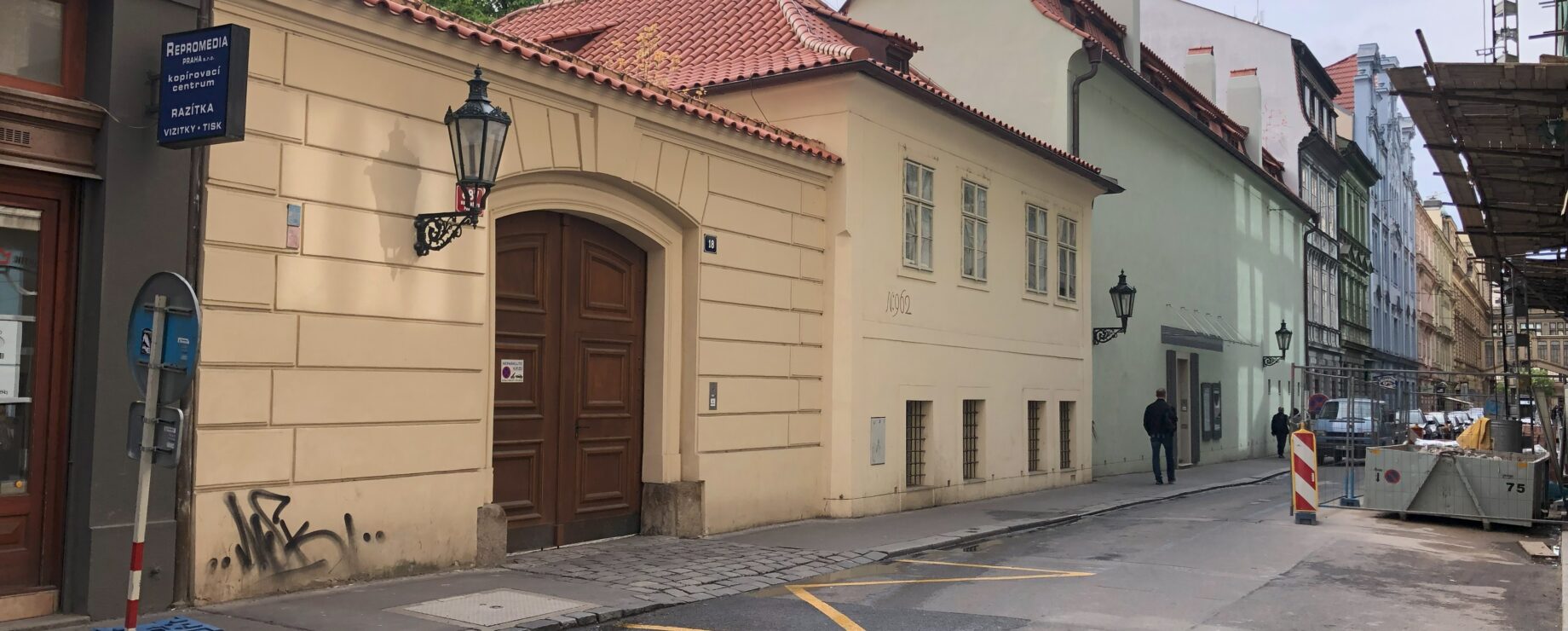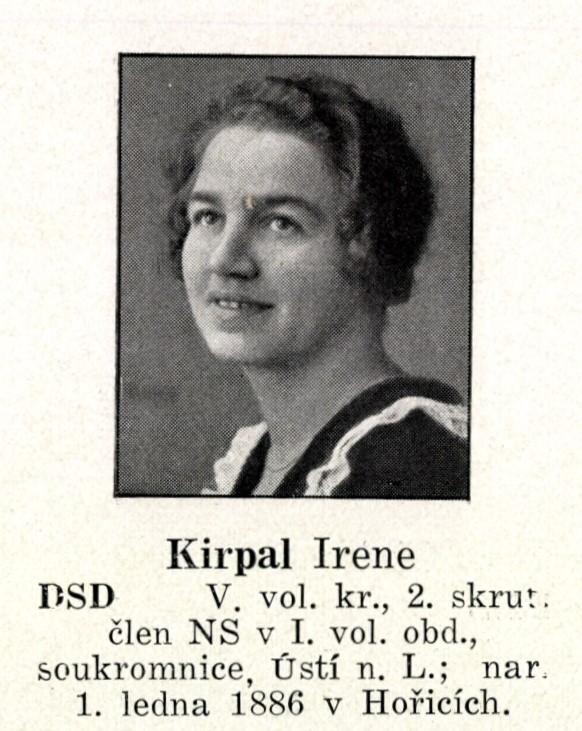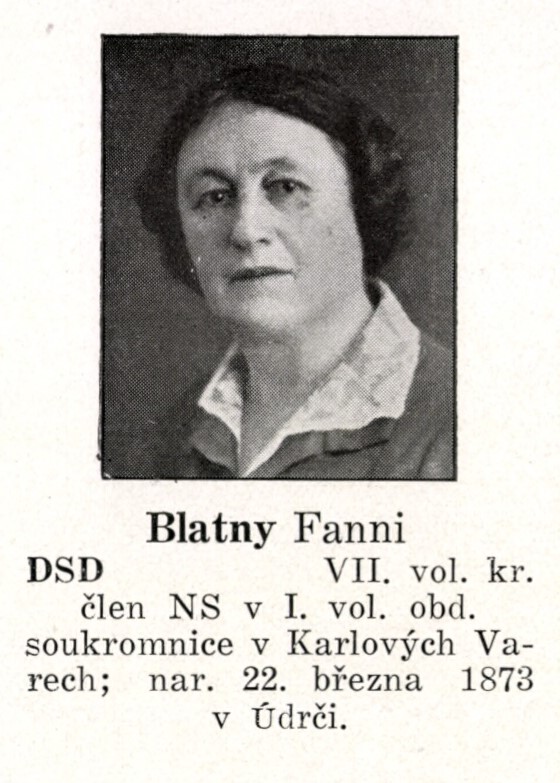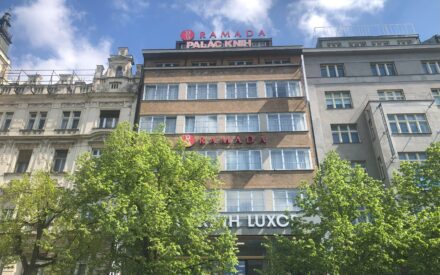
Irene Kirpal and Franziska Blatny

One of the most influential German women in Czechoslovak politics was Irene Kirpal, who succeeded in all the interwar parliamentary elections and thus remained a member of parliament for eighteen years. She was born in Hořice in 1886 in a family of a Jewish clerk. Until her marriage, she worked as a governess and from 1912 she was also partially involved in political activities. In 1938, German political parties were abolished due to the beginning of the Second Czechoslovak Republic. She lost her mandate and moved to the United Kingdom. In 1946, she returned to Czechoslovakia. She died in Ústí nad Labem in 1977.
In December 1920, Irena Kirpal delivered her speech on care for children and the youth, physical education of children and elimination of epidemics. She specifically mentioned tuberculosis, a disease with a high incidence in the population at the time, and she criticized insufficient funding of medical facilities and hospitals and the lack of support and education opportunities for the new medical staff. This is what she said about physical education:
“During the war, we deprived children of the last thing they had: their gymnasiums. These premises were typically used as accommodation for soldiers or provisional shops. According to the statistics provided by Ústí and Labem school doctors, 20% of pupils started to suffer from scoliosis as they could not have exercise in the gymnasiums. Workers’ sports clubs were doing an excellent job though: the sports club in Ústí and Labem has over 33,000 young members and thousands of children who get involved in regular exercise. Unfortunately, these clubs receive no subsidies from the state. It is very unjust that the Sokol sports union is largely subsidizes, while Czech workers’ sports club get a very little funding and the German ones get none. (Noise and shouting.)“[1]
Another woman representing the German Social Democracy was Franziska Blatny who got elected in three consecutive elections and thus served as a member of parliament for fifteen years. Born in a large Jewish family in 1873, she lived in Carlsbad from the 1880s and she also became a municipal representative there later. In 1920, she was elected to the National Assembly. Because of her origin, she moved to Great Britain in 1939 where she continued to be an active politician. After the World War II, Edvard Beneš invited her to return to Czechoslovakia, but Franziska (Fanni) decided to stay in Great Britain until her death.

[1] https://www.psp.cz/eknih/1920ns/ps/stenprot/030schuz/s030016.htm
D. Musilová: Z ženského pohledu. Poslankyně a senátorky Národního shromáždění Československé republiky 1918–1939. České Budějovice: Vlastimil Rada, 2007.
Zdroj vyobrazení:
Československo. Poslanecká sněmovna v II. volebním období. V Praze: [nákl. vl.], 1926, s. 99 a 123.
The secretariat of the German Social Democratic Party was located at Nekázanka 18.
Další místa na téma "Notable Women of German-Speaking Prague"


